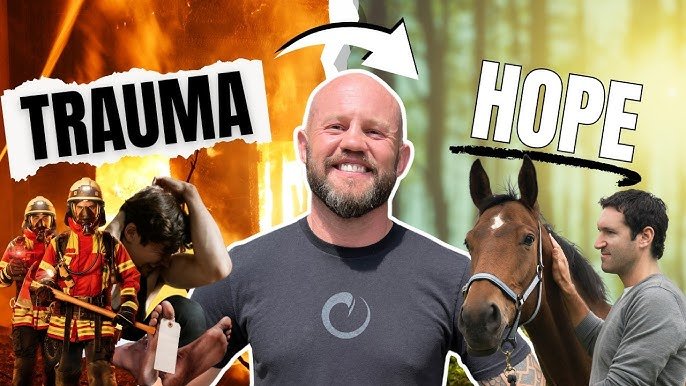Why Washington Is Losing Citizens to Idaho with retired WA Senator Lynda Wilson
What happens when two states share a border but live in two different political worlds? That’s the question at the heart of this North Idaho Experience Podcast episode featuring retired Washington State Senator Lynda Wilson. With decades of political and personal experience, Wilson has witnessed firsthand Washington’s sharp policy shifts and their real-world consequences. Today, she lives part-time in North Idaho and joins the conversation about why so many Washingtonians are moving east—and how Idaho can avoid repeating its neighbor’s mistakes.
The Appeal of Idaho—and the Warning Signs from Washington
Wilson, who served two years in the House of Representatives before spending eight years in the Senate, describes the rapid political changes in Washington. While she once worked under a Republican majority, the balance shifted in 2018, ushering in what she calls “a fast downhill slide.”
Her concern: Idaho may be on the same path if voters become apathetic or fail to pay attention to down-ballot races, judicial appointments, and incremental policy changes.
“You’ve got to really pay attention to what legislators are doing,” Wilson warns. “In a state like this, you should have really conservative legislators. And I think some of the bills I see go through here aren’t as conservative as they should be.”
Early Indicators: How Washington Slipped
Wilson points to several early warning signs from Washington that Idaho should heed:
- Appointed vs. Elected Sheriffs: Washington counties like King County appoint sheriffs through city councils or commissioners rather than by citizen vote. This, she argues, erodes accountability. “Sheriffs should answer to the people—not politicians.”
- Omnibus Bills: Large, complicated bills packed with multiple topics can hide controversial measures. “I always voted no on those because the devil is in the details,” Wilson says.
- Gun Laws & Incremental Control: Instead of sweeping bans, Washington advanced controversial gun restrictions in small, yearly steps. One example: proposals to require $25,000 liability deposits per firearm. While some measures failed, others—like assault-style weapon bans and mandatory permits—passed.
This incrementalism, she explains, mirrors the “frog in the pot” effect: slow, steady temperature increases that go unnoticed until it’s too late.
Education, Parental Rights, and Cultural Shifts
Perhaps the most heated political battleground has been education. Washington’s Department of Education, Wilson argues, increasingly pushes agendas around DEI and gender policies while minimizing parental input.
One example: a parental rights initiative signed by nearly half a million Washingtonians and passed by close to 60% of voters. Instead of respecting the measure, the legislature passed its own version, which allowed them to alter it a year later. The result: the bill was quickly gutted.
For Wilson, the pattern is clear: “They say it doesn’t fit the law, but that’s the point—the initiative changes the law. They ignore it anyway.”
Crime, Drugs, and Public Safety
A major driver of Washington’s exodus is rising crime and drug decriminalization. Wilson recounts her time fighting bills that reduced penalties for possession and pursuit laws that prevented police from chasing suspects.
The results were immediate:
- Vehicle thefts skyrocketed.
- Violent crime rankings jumped from 30th in the nation in 2013 to third worst by 2023.
- Cities like Tacoma now report crime rates higher than Compton, California.
Fentanyl, in particular, has devastated communities. Wilson pushed for child-protection legislation after children were poisoned by parental drug use, but such bills repeatedly stalled.
By contrast, Idaho enforces stricter trafficking penalties, mandatory minimums, and drug-induced homicide laws. The overdose rate in Kootenai County is 1 in 6,900, compared to Spokane’s 1 in 2,200.
“Accountability matters,” Wilson insists. “Without it, you’re just enabling addiction and creating victims.”
Homelessness and “Compassion” Policies
Seattle’s homelessness crisis has become infamous nationwide. Wilson explains how “compassionate” policies—like taxpayer-funded tiny homes with no treatment requirements—backfire.
“They bring their addiction with them,” she says. “That’s not compassion. Compassion means holding people accountable and giving them a chance to get better. What they’re doing now just creates hell holes.”
COVID Policies and the Tipping Point
Wilson thought the tipping point might come during COVID, when strict mandates prohibited Washingtonians from gathering, dining, or even visiting dying loved ones. Many residents—including her own daughter—moved to Idaho shortly afterward.
“People said, ‘Tax me all you want, but when you start affecting my kids, I’m done.’ That’s when entire families packed up and left.”
Idaho’s lighter touch during the pandemic attracted new residents, swelling local economies—but also driving up housing costs for younger Idahoans.
Taxes, Budgets, and Business Flight
Washington’s budget ballooned from $38 billion in 2013 to $78 billion in 2023, with little to show but higher crime, homelessness, and outmigration.
Key policies that fueled the flight:
- Capital Gains Tax: Ruled an “excise tax” by the state Supreme Court, despite functioning as an income tax.
- Proposed Wealth Taxes: Aimed at high earners but likely to impact the middle class long-term.
- Climate Commitment Act: Driving up gas prices by 40 cents per gallon without ensuring revenue is spent on environmental projects.
Even corporate giants like Amazon pulled back from Seattle, with founder Jeff Bezos relocating to Florida. “They killed the golden goose,” Wilson says.
By contrast, Idaho remains competitive for businesses thanks to lower taxes, pro-business policies, and a stronger commitment to individual freedoms.
The Path Forward for Idaho
Wilson urges Idahoans to stay engaged locally, vote in down-ballot races, and keep an eye on judicial decisions. “It’s not enough to just vote for president,” she says. “Pay attention to your legislators, your judges, your sheriffs—those are the people shaping your daily freedoms.”
Her advice is clear: learn from Washington’s mistakes. Avoid apathy. Watch for incremental changes. Support elected sheriffs. And above all, resist policies that erode accountability, expand government control, or undermine public safety.
“Humans are happier when they’re free. That’s why people are moving to Idaho. The challenge now is keeping Idaho from becoming Washington.”
Final Thoughts
Washington’s decline didn’t happen overnight—it happened incrementally, through apathy, unchecked judicial power, and cultural shifts in schools, policing, and taxation. The great migration to Idaho is more than a real estate trend; it’s a warning.
As Lynda Wilson’s story shows, Idaho has an opportunity to preserve its values, freedoms, and safety—if its citizens remain vigilant and engaged.
Listen, Watch, Read






Your Guide to Idaho’s Best-Kept Secrets
Join our email list for exclusive insights, local tips, and the latest listings. Get closer to the Idaho lifestyle you’ve been dreaming of. Sign up today!




